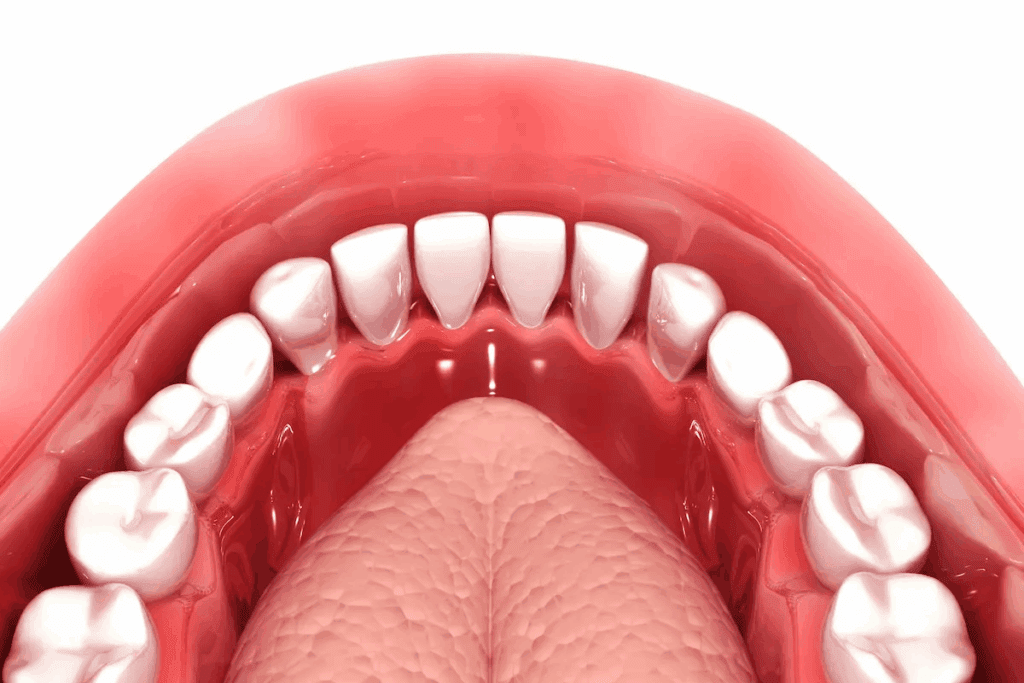Last Updated on November 20, 2025 by Hozen

Understanding Peritonsillar Abscess: Is it Contagious?
Peritonsillar abscess is a serious issue caused by bacterial infections. It leads to a buildup of pus behind the tonsils, causing a lot of throat pain and trouble swallowing. The abscess itself isn’t contagious, but the bacteria causing it can spread to others.
Is peritonsillar abscess contagious? Get the facts on why the abscess itself is not contagious but the underlying bacterial infection is.
Causes and Risk Factors
The main reason for peritonsillar abscess is a bacterial infection. This often happens due to bad oral hygiene and a history of tonsillitis. Knowing these risk factors is key to preventing and treating the condition.
In conclusion, peritonsillar abscess is a serious issue, but it’s not contagious in the usual way. Yet, the bacteria causing it can spread, making good hygiene practices very important.
Peritonsillar abscess is a serious infection. It happens when bacteria spread from the tonsils to the surrounding tissues. Knowing the causes and risk factors is key to preventing and treating it.
The main cause is a bacterial infection spreading from the tonsils. This usually happens after many bouts of tonsillitis. The infection then moves to the tissues around the tonsils.
Several things can make you more likely to get peritonsillar abscess. These include a history of tonsillitis, poor oral hygiene, and health conditions that weaken the immune system.
People who have had tonsillitis many times are at higher risk. Keeping your mouth clean and managing health issues can lower your risk.
It’s important to know the signs of peritonsillar abscess to get help fast. Symptoms include a very sore throat, trouble swallowing, and a high fever. A swollen and tender neck can also be a sign.
Doctors use a physical exam, medical history, and sometimes imaging tests to diagnose. They check the throat to confirm the diagnosis.
Treatment often includes antibiotics to fight the infection. Sometimes, surgery is needed to drain the abscess. It’s key to follow the doctor’s treatment plan to heal properly.
Preventing peritonsillar abscess is also important. Good hygiene, like washing hands often, and avoiding people with colds can help. This reduces the risk of getting the abscess.
Knowing the symptoms, diagnosis, and treatment helps get the right care quickly. This ensures effective treatment and prevents complications.

To diagnose a peritonsillar abscess, doctors use a few methods. They look at your physical condition, your medical history, and do some tests. Knowing the signs well helps doctors find the problem and treat it right.
Doctors start by checking you physically. They might also use CT scans and lab tests. These help confirm if you have an abscess.

Dealing with a peritonsillar abscess requires both medical and surgical steps. Doctors usually give antibiotics to fight the infection. It’s also important to manage pain well.
Seeing a doctor quickly is key to avoid serious problems. Sometimes, a hospital stay is needed to get the right care.
Peritonsillar abscess is a serious condition. It can lead to various complications if not treated properly. If the abscess ruptures, it can spread infection to other parts of the body. This includes the brain, leading to life-threatening conditions like meningitis.
People with peritonsillar abscess are at risk of developing sepsis. Sepsis is a potentially life-threatening condition. It happens when the body’s response to an infection becomes uncontrolled. Sepsis can lead to organ failure and death if not promptly treated.
Peritonsillar abscess can also cause significant discomfort and pain. This makes it hard to eat, drink, and perform daily activities. If left untreated, the condition can lead to serious health consequences. This includes abscess rupture, which can spread infection to other parts of the body.
Early diagnosis and treatment are essential. They help prevent complications and promote optimal outcomes. It is important to seek medical attention immediately if symptoms persist or worsen over time.
Keeping your mouth clean is important to avoid peritonsillar abscess. Brushing and flossing regularly helps remove harmful bacteria. Eating a diet full of fruits, veggies, and whole grains boosts your health and immune system.
It’s also vital to see your dentist often. This helps catch and treat any mouth problems early. Taking care of your teeth can greatly lower your chance of getting a peritonsillar abscess.
Peritonsillar abscess itself is not contagious. But, the bacteria causing it, like streptococcus or staphylococcus, can spread.
The contagious period depends on the infection. After starting antibiotics, a person is usually not contagious in 24 to 48 hours.
It’s usually caused by a bacterial infection, often from tonsillitis. Streptococcus and staphylococcus are the main culprits.
Symptoms include a very sore throat and trouble swallowing. You might also have a fever, swollen lymph nodes, and a sore area on one side of your throat.
Doctors use a physical exam, medical history, and sometimes imaging like ultrasound or CT scans. This confirms the abscess.
Treatment involves antibiotics for the infection. Sometimes, draining the abscess is needed, either by needle or surgery.
Preventing it means managing tonsillitis well and seeing a doctor if symptoms get worse. Good oral hygiene and avoiding close contact with sick people also helps.
Complications include airway blockage and infection spreading. Sepsis is also a risk. Quick medical care is key to avoid these issues.
Yes, quinsy is another name for peritonsillar abscess. It’s the same condition of pus behind the tonsils.
National Center for Biotechnology Information. (2025). Is Peritonsillar Abscess Contagious What You Need to.
Subscribe to our e-newsletter to stay informed about the latest innovations in the world of health and exclusive offers!